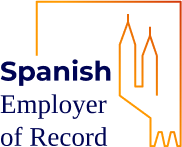10 April 2025
How to handle payroll for employees and freelance workers in Spain
Spain’s vibrant economy and diverse talent pool make it an appealing destination for international businesses looking to grow their teams. Many companies operating in Spain manage a hybrid workforce that includes full-time employees and independent contractors.
This setup offers flexibility but introduces a layer of complexity when it comes to payroll compliance. The distinction between salaried employees and self-employed freelancers—known locally as “autónomos”—comes with different legal, tax, and administrative obligations.
This guide provides an overview of managing payroll for employees and freelancers in Spain. It outlines the key differences between these two classifications, the specific payroll requirements each entails, and the risks of getting it wrong. Finally, we’ll explore how an Employer of Record can simplify the process, ensuring compliance and efficiency for companies operating with a mixed workforce.
Understanding employment classifications in Spain
Before diving into payroll specifics, it’s crucial to understand the legal distinctions between employees and freelancers in Spain. Spanish labour law classifies workers based on their relationship with the company, their degree of independence, and how they are compensated.
Employees (asalariados):
- Have a clear employment contract, often indefinite or fixed-term.
- Work under the direction and control of the employer, following set schedules and using company-provided resources.
- Rely on the employer for income tax withholding and social security contributions.
- Are entitled to statutory benefits such as holiday pay, sick leave, and parental leave.
Freelancers (autónomos):
- Operate independently, often working on specific projects for multiple clients.
- Are not directly supervised by the company and maintain control over their work methods and hours.
- Manage their own tax payments, VAT (IVA), and social security contributions.
- Do not receive traditional employee benefits unless specifically agreed upon in the contract.
The difference lies primarily in dependency: employees rely on their employer for financial stability and work structure, while freelancers function as independent businesses providing services.
Payroll rules for employees in Spain
Payroll management for employees is more structured than for freelancers, with clear obligations and standardised processes. Employers must meet the following requirements:
- Employment contracts and onboarding: Employees must be hired under legally compliant contracts. These contracts should detail working hours, salary, benefits, and termination terms.
- Income tax withholding (IRPF): Employers must calculate and deduct personal income tax from employees’ wages. This is submitted to the Spanish Tax Agency on a monthly or quarterly basis.
- Social security contributions (Seguridad Social): Employers are responsible for a significant portion of social security contributions. They must register employees with the Social Security system, ensuring contributions are correctly allocated to pensions, unemployment insurance, and healthcare.
- Payslips and reporting: Employees must receive monthly payslips (nóminas) that detail gross salary, deductions, and net pay. Employers also need to file regular reports with tax and social security authorities.
Mandatory benefits: Spanish labour law guarantees employees paid annual leave, sick pay, maternity/paternity leave, and in some cases, severance pay. These must be reflected in payroll calculations.
How to pay freelance workers in Spain
Freelancers, or autónomos, are treated differently under Spanish law. While they operate independently, businesses hiring them still have responsibilities. Payroll for freelancers involves the following considerations:
- Documentation: Freelancers must issue invoices for their work. These invoices include their tax identification number, a description of the services provided, and the total amount owed, including VAT where applicable.
- Tax responsibilities: Freelancers are responsible for paying their own personal income tax (IRPF) and collecting/remitting VAT (IVA) on applicable services. They must register with the Special Regime for Self-Employed Workers (RETA) and file regular tax returns.
- Employer responsibilities: While companies don’t directly handle freelancers’ taxes, they must ensure the contractor is properly registered and that the contractual arrangement is clearly documented. In some cases, the hiring company may choose to withhold a portion of the freelancer’s IRPF and remit it to the authorities on their behalf.
- No traditional payroll: Instead of a monthly payroll system, companies pay freelancers based on invoices. Payment terms, including deadlines and amounts, should be clearly defined in the contract.
Compliance risks and payroll challenges
Managing payroll for a hybrid workforce presents challenges, particularly when it comes to compliance. Some common risks include:
- Misclassification: Treating a worker as a freelancer when they meet the legal criteria of an employee can lead to penalties, back payments, and legal disputes.
- Tax and Social Security errors: Incorrect deductions or failure to meet reporting deadlines can result in audits, fines, and reputational damage.
- Inadequate documentation: Without clear contracts, invoices, and records, businesses may struggle to demonstrate compliance during inspections or audits.
Technology and software recommendations
When managing payroll in Spain, choosing the right technology can make a world of difference. Businesses handling both employees and freelancers need solutions that integrate seamlessly with Spanish tax authorities, simplify social security reporting, and keep up with the latest compliance requirements.
For starters, many companies use payroll platforms like NóminaSol or Factorial HR. These are specifically tailored for the Spanish market, providing built-in tools to calculate IRPF (income tax) withholdings, social security contributions, and even generate compliant payslips. By using a Spanish-language platform that adheres to local regulations, businesses can significantly reduce the risk of errors and ensure that all documentation is formatted correctly for Spanish authorities.
Additionally, integrating payroll software with your company’s accounting systems or HR management platforms can streamline processes further. Many modern payroll tools offer API integrations with popular accounting platforms or even time-tracking systems, allowing for automated payroll runs, accurate tax reporting, and real-time adjustments.
Ultimately, the key is selecting a payroll solution that is designed with Spain’s tax and labour laws in mind. With the right software, companies can reduce administrative overhead, ensure compliance, and free up valuable time to focus on growth.
How an Employer of Record can help
An Employer of Record (EOR) can significantly simplify payroll for businesses managing both employees and freelancers in Spain. EORs take on employment’s legal and administrative burden, ensuring all workers are classified correctly and paid in compliance with Spanish law.
For employees:
- The EOR acts as the legal employer, managing contracts, payroll, tax deductions, and social security contributions.
- It ensures employees receive their statutory benefits and that all reporting requirements are met.
- By handling these responsibilities, the EOR reduces the risk of non-compliance and frees up company resources.
For freelancers:
- The EOR can facilitate payment processes, ensuring that freelancers are compensated accurately and on time.
- It helps confirm that the freelancer’s legal and tax status is correct, reducing the risk of misclassification.
- For businesses that want to offer benefits to freelancers, an EOR can provide structured solutions that maintain compliance.
For example, when Céline, a Belgian entrepreneur, decided to expand her IT startup into Spain, she quickly encountered challenges managing local payroll and compliance for her new team. Unfamiliar with Spanish labour laws and tax regulations, she worried about handling contracts, social security contributions, and payslip accuracy.
Working with an Employer of Record (EOR) in Spain proved to be the solution. The EOR not only ensured her employees were paid on time and in compliance with Spanish regulations, but also provided peace of mind by managing tax filings and handling all legal documentation. This allowed Céline to focus on growing her business without the administrative burdens of payroll and compliance.
Benefits of using an EOR in Spain:
- Streamlines payroll processes for mixed workforces.
- Ensures compliance with Spanish labour and tax laws.
- Reduces administrative complexity and minimises the risk of penalties.
- Provides a single point of contact for managing payroll, benefits, and compliance.
Handle payroll with ease
Handling payroll for both employees and freelancers in Spain requires a thorough understanding of Spanish labour and tax laws. Employees benefit from structured payroll systems, statutory benefits, and employer-managed taxes, while freelancers operate independently and handle their own tax responsibilities. Misclassifying workers or failing to meet compliance requirements can lead to costly consequences, making it essential to have clear processes in place.
An Employer of Record can be a valuable partner for businesses seeking a simple, compliant solution. By managing payroll, tax obligations, and worker classification, an EOR enables companies to focus on growth and strategy rather than navigating complex regulations. If your business is growing in Spain and managing a hybrid workforce, consider partnering with an Employer of Record. Contact us today to ensure compliance and gain peace of mind.



